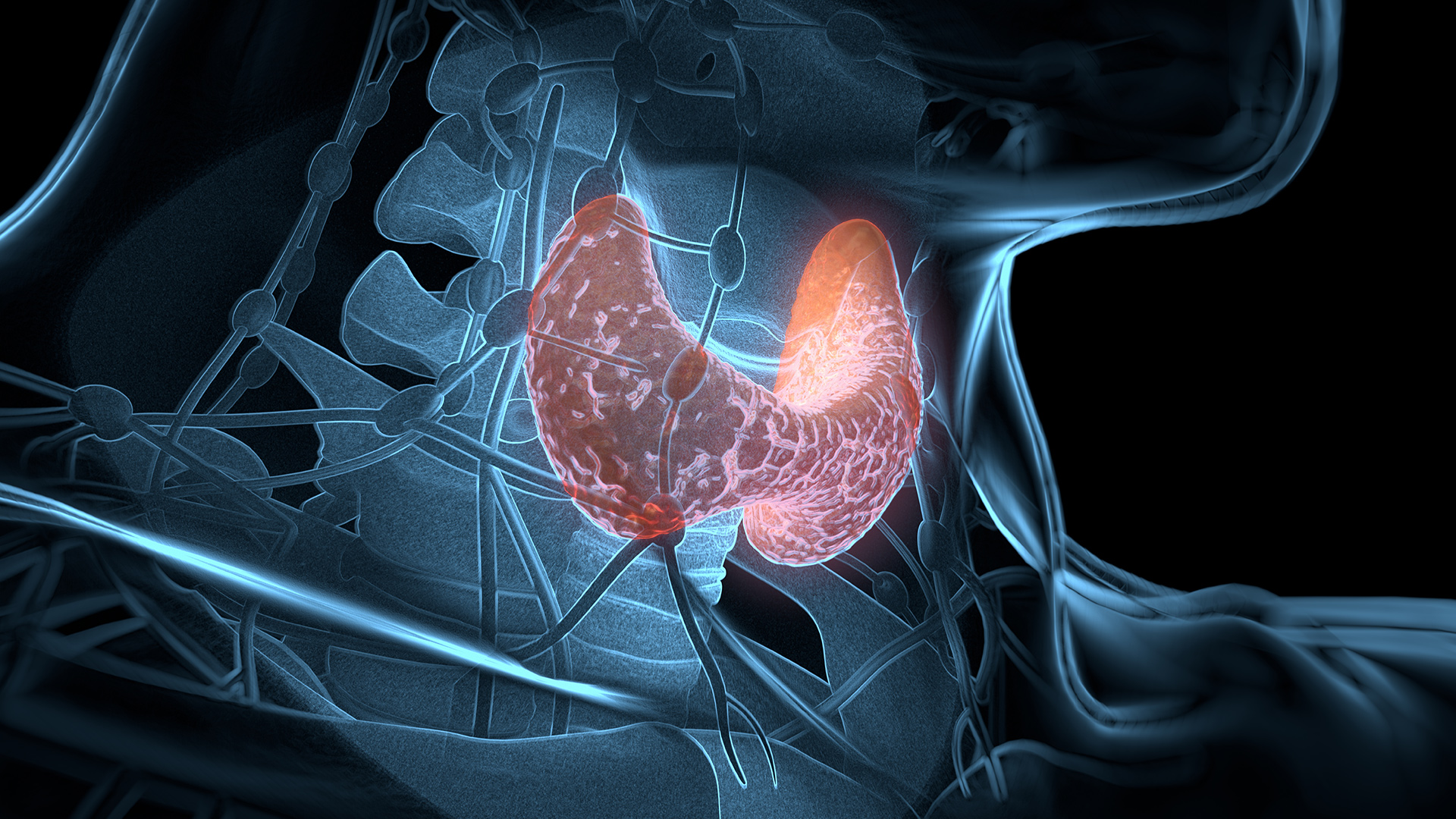
Thyroid

What are Thyroid issues?
The thyroid is a soft, butterfly-shaped gland that lies wrapped around the windpipe in your neck. It secretes thyroid hormones that help regulate metabolism.
Problems often occur when the thyroid produces too much or too little thyroid hormone. Another cause of thyroid issues is the gland itself, which can become enlarged, lumpy or inflamed.
The thyroid gland manufactures two essential hormones – thyroxine (T4) and triiodothyronine (T3) that together are called thyroid hormone.
Thyroid hormone regulates the metabolic rate of almost all the cells of the body, and influences the health of the heart, brain and bones. It is also needed for normal development of the brain in children and for normal reproductive functioning.
Hyperthyroidism
Hyperthyroidism is when the thyroid becomes overactive and releases too much thyroid hormone into the blood. Another name for it is thyrotoxicosis. If you have too much circulating thyroid hormone your metabolism is continually ‘revved up’. The most common cause of Hyperthyroidism is Graves’ disease (link).
What are the symptoms?
Some of the symptoms of Hyperthyroidism (an overactive thyroid hormones)
- Weight loss, despite a normal or increased appetite
- Nervousness, agitation and anxiety
- Tiredness
- Physical weakness (muscular)
- Rapid pulse
- Tremor (shaking) of the hands
- Sweating and sensitivity to heat
- Diarrhea
